Properties
✔ Nutrient-rich: Contains vitamins A, E, D and F, as well as essential fatty acids (Omega-3, Omega-6, Omega-9), promoting nourished, radiant skin.
✔ Antioxidant action: Helps protect skin against external aggressors, helping to preserve its radiance.
✔ Moisturizing effect: Maintains hydration and limits water loss, ideal for skin prone to dryness.
✔ Skin renewal support: Promotes repair of superficial skin irregularities.
✔ Soothing care: Suitable for delicate skin, helping to improve skin comfort.
✔ Emollient: Brings softness and suppleness without leaving a greasy film.
✔ Fast absorption: Light texture that easily penetrates the skin.
Recommended for which skin type?
✔ S kin prone to skin imbalances: Helps soothe and improve the appearance of irregularities.
✔ Dry skin: Provides reinforced hydration and maintains skin comfort.
✔ Combination to oily skin: Helps balance the hydrolipidic film.
Use in hair care
✔ Solid shampoo and conditioner: Add 10 ml Baobab Oil to a recipe to enrich the formula.
✔ Dry, brittle hair: Deeply moisturizes and promotes capillary suppleness.
✔ Dull, limp hair: Brings radiance and vitality thanks to its essential nutrients.
✔ Curly hair: Helps define curls and limit frizz.
✔ End care: Applied to the ends, it helps limit their dehydration.
Composition & natural active ingredients
🔹 Essential fatty acids:
- Oleic acid (Omega-9): 30-40% - Helps keep skin soft and supple.
- Linoleic acid (Omega-6): 20-35% - Helps strengthen the skin barrier.
- Palmitic acid: 18-30% - Helps protect skin against dehydration.
- Stearic acid: 2-8% - Provides softness and maintains skin elasticity.
🔹 Vitamins and antioxidant compounds:
- Vitamin E (Tocopherol): Helps protect cells against oxidative stress.
- Vitamin C: Supports collagen production and helps preserve skin radiance.
- Phytosterols: help soothe and strengthen the skin barrier.
🔹 General information:
- Botanical name: Adansonia digitata
- Appearance: Golden to light yellow oily liquid
- Odour: Subtle and slightly nutty
- Texture: Rich but light, absorbs quickly without leaving residue
Baobab Oil is the ingredient of choice for natural cosmetic formulations, from handcrafted soaps to skin and hair care products.
Tips and Tricks for the Soap Maker
Unsaponifiables:
-
Phytosterols: Compounds naturally present in plant oils, they are recognized for their soothing properties and help maintain the skin's protective barrier.
-
Tocopherols (Vitamin E): Powerful antioxidants, they help protect skin from external aggressors and preserve its radiance.
-
Squalene: Although present in smaller quantities, it is an excellent emollient and helps maintain skin hydration and balance.
These specific components add value to Baobab Oil, making it the ingredient of choice for skin care and natural soap formulations.
The saponification value of Nigella oil is 143, which means that 0.143 g of NAOH soda are needed to saponify 1 g of Baobab oil. This information will help you calculate your own recipe.
In your calculator, you'll need to select "Baobab Oil" or "Huile de Baobab. "
Your recipe should contain between 5% and 15% maximum.
Baobab oil will give your soap hardness and a stable, creamy lather. Don't hesitate to use this oil alongside Coconut Butter.
Trace management
- Trace speed: Baobab oil is relatively light compared to thicker oils such as palm or castor oil. It tends to slow down the trace, which can be beneficial if you want to work complex designs or patterns into your soap.
- Trace consistency: When Baobab Oil is used in moderate quantities in a soap recipe, it helps to obtain a more fluid trace.
- Saponification temperature: Working at a slightly higher temperature can help speed up the trace a little if necessary. The ideal temperature for mixing oils and soda solution is generally between 38°C and 45°C.
- Formulation: Balance your recipes with oils that reach the trace more quickly, such as Coconut Butter, Shea Butter or Macadamia Oil.
Additions / Superfatting :
As an oil replacer: If you use Baobab Oil as an oil replacer (added after the trace for its benefits), it can be used at a rate of 5% to 10% of the total amount of oils (PTH). This helps retain its beneficial properties without being completely saponified.
As part of the base recipe: If Baobab Oil is used as an integral part of the oils in your soap, you can include it at a level of 10% to 20% of the total oils (PTH).
Handling: With a slower trace speed, you have more time to mix colorants, fragrances or other additives without the mixture becoming too thick too quickly. This allows better integration of ingredients and more precise control over the aesthetics of the finished soap.
Additives: Additives such as sugar, honey or milk can accelerate the trace. If you find that baobab oil slows down the process too much, consider adding one of these ingredients in small quantities to adjust the saponification speed.
Mussels
Be aware that the reaction between soda and oils can generate heat. Use our appropriate molds and monitor the temperature throughout the process to avoid the freezing phase.
Our molds are flexible, making them easy to remove from the mold once the soap has hardened. What's more, they enable better heat distribution during the saponification process, promoting optimal soap setting.
How to store Baobab oil :
- Store in a cool, dry place away from direct sunlight.
- Make sure it's securely closed.
- It generally keeps for up to 12 months after opening.
Extraction process :
Baobab oil is generally extracted by cold pressing the seeds of the fruit of the Adansonia tree. This method preserves the oil's essential nutrients, antioxidants and moisturizing properties.
Illustration photo
The indications and advice given above are provided for information only, based on reputable sources in aromatherapy, soap-making and phytotherapy. Under no circumstances should they be considered as medical advice. This information is not intended to replace professional medical advice, diagnosis or treatment. It is essential to consult a health professional before using essential oils or any other product mentioned. In addition, please note that the product discussed in this context is not intended for consumption.

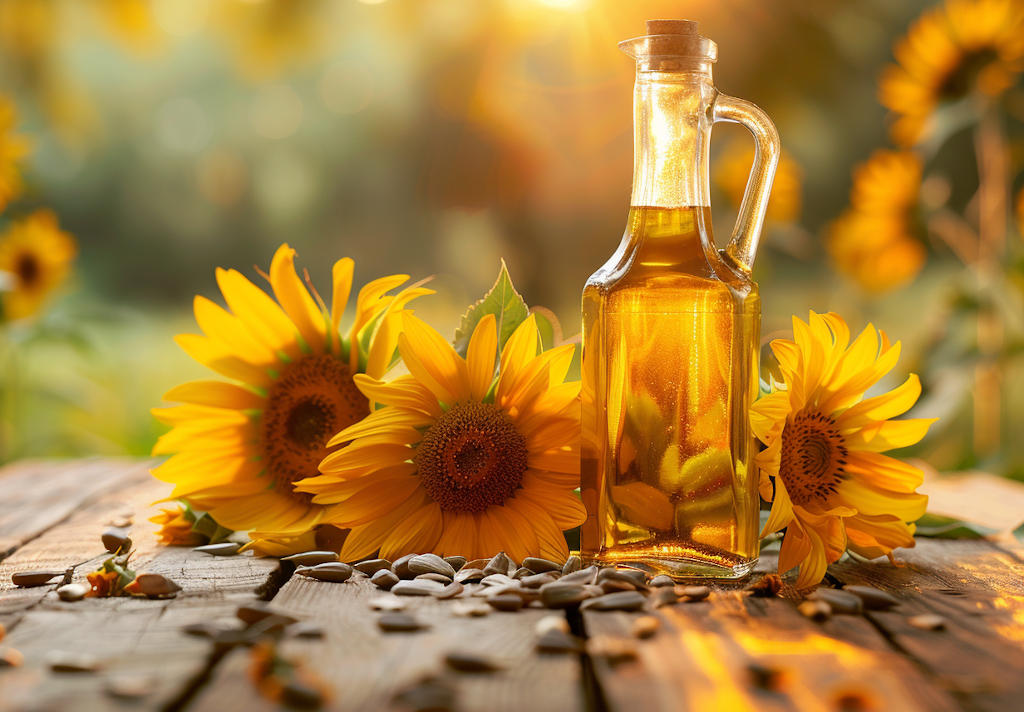
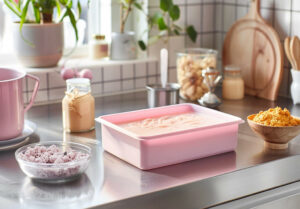
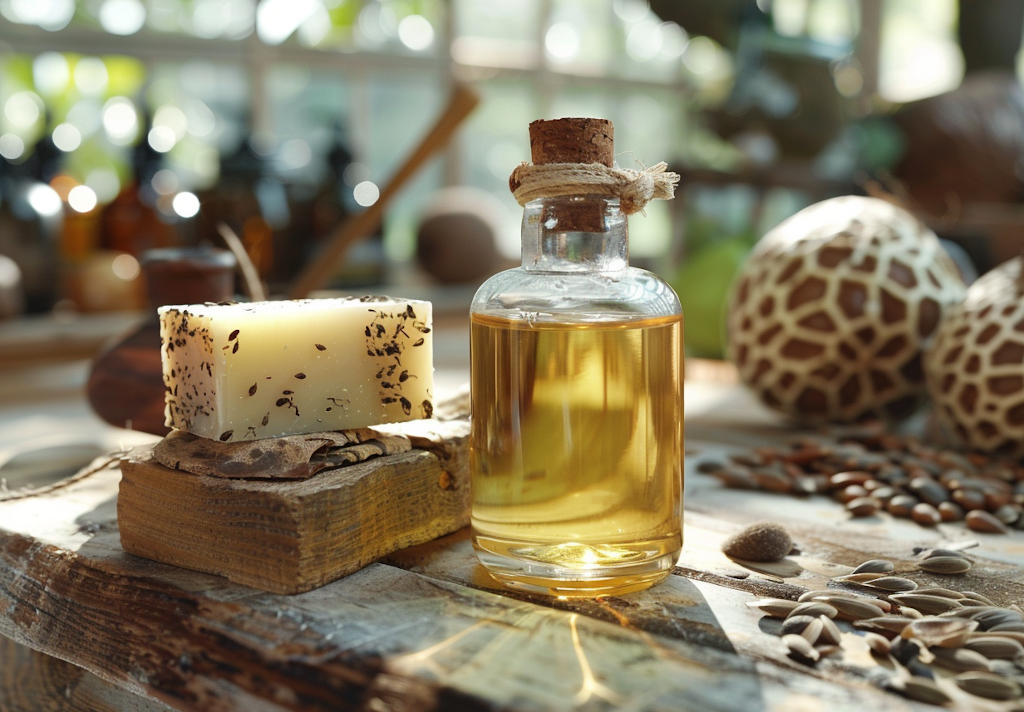
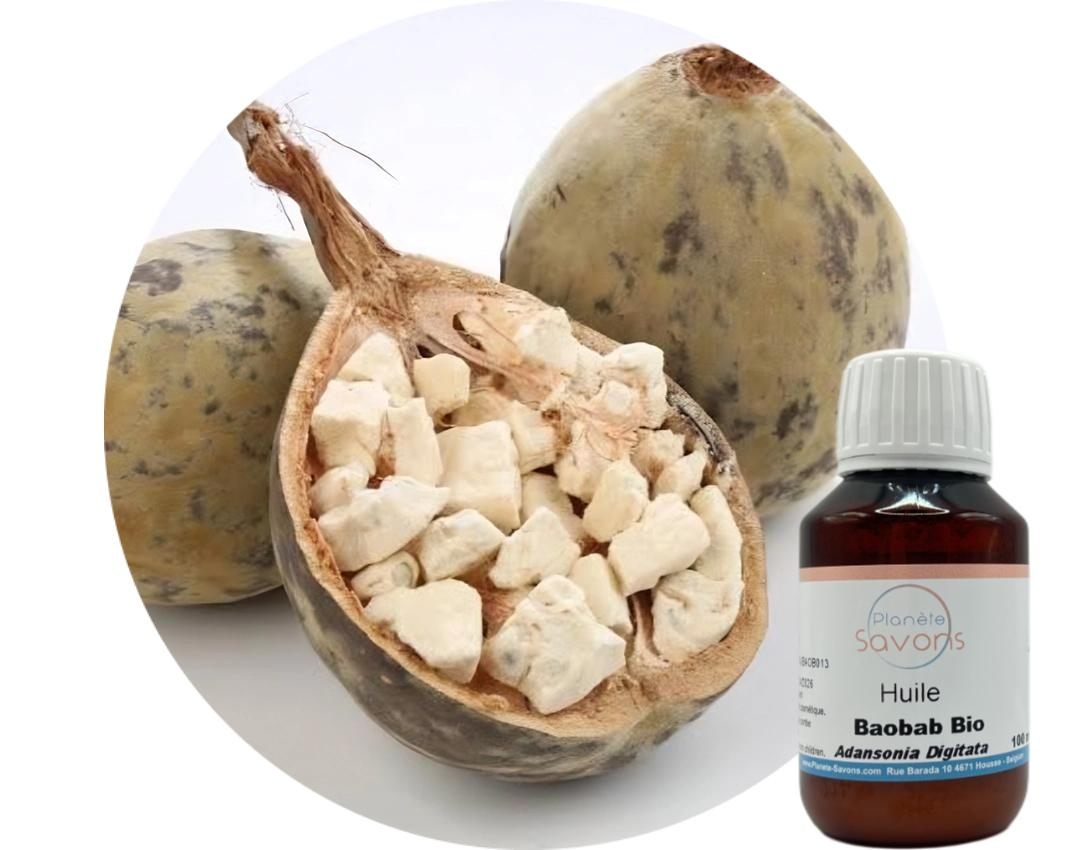
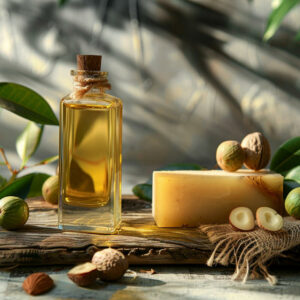
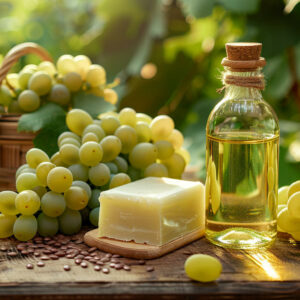
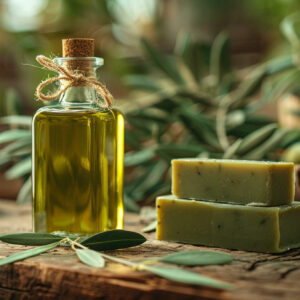
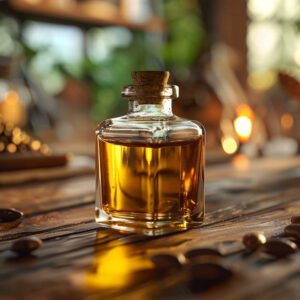
Reviews
There are no reviews yet.